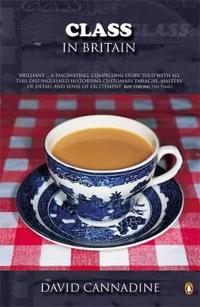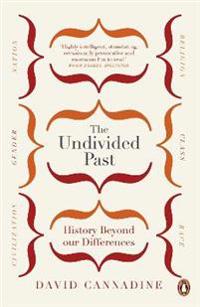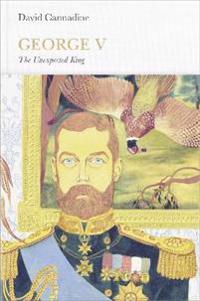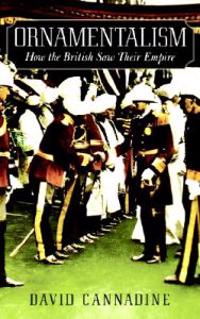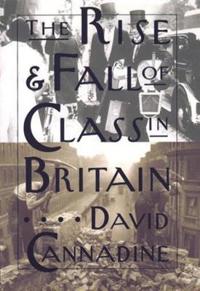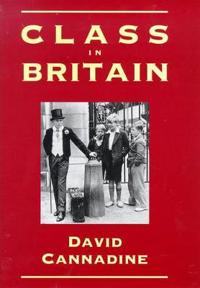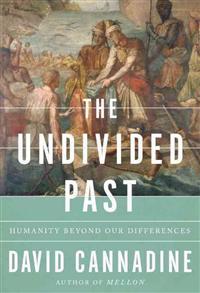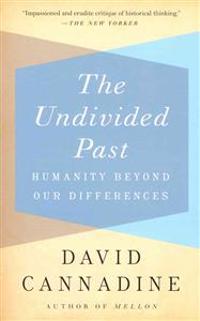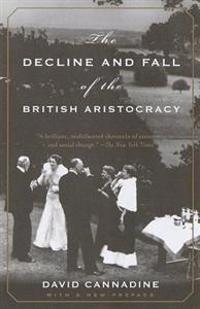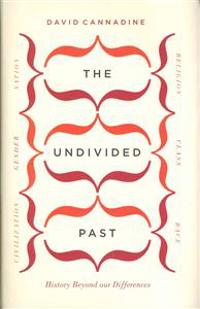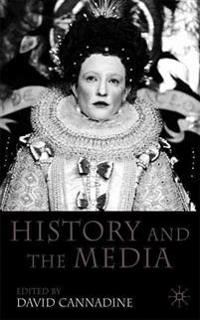The Class in Britain (Storpocket)
avDavid Cannadine
ISBN: 9780140249545 - UTGIVEN: 200003David Cannadine's unique history examines the British preoccupation with class and the different ways the British have thought about their own society. From the eighteenth through the twentieth century, he traces the different ways British society has been viewed, unveiling the different purposes ea[...]
The Undivided Past (Häftad)
avDavid Cannadine
ISBN: 9780141036908 - UTGIVEN: 2014-04David Cannadine's impassioned, controversial plea for us to recognise the importance of both equality and history. Great works of history have so often had at their heart a wish to sift people in ways that have been profoundly damaging and provided intellectual justification for terrible political d[...]
George V (Inbunden)
avDavid Cannadine
ISBN: 9780141976891 - UTGIVEN: 2014-12For a man with such conventional tastes and views, George V had a revolutionary impact. Almost despite himself he marked a decisive break with his flamboyant predecessor Edward VII, inventing the modern monarchy, with its emphasis on frequent public appearances, family values and duty. George V was [...]
Ornamentalism (Häftad)
avDavid Cannadine
ISBN: 9780195157949 - UTGIVEN: 2002-12With the return of Hong Kong to the Chinese government in 1997, the empire that had lasted three hundred years and "upon which the sun never set" finally lost its hold on the world and slipped into history. But the question of how we understand the British Empire--its origins, nature, purpose, and e[...]
The Right Kind Of History (Pocket)
avDavid Cannadine, Jenny Keating, Nicola Sheldon
ISBN: 9780230300873 - UTGIVEN: 2011-11-18The fruit of a two-year research project, this book aims to provide the first historical account of the teaching of history in twentieth-century England, and a series of reflections and suggestions which will inform, feed into and influence the current debate over teaching in schools, a debate which[...]
The Rise and Fall of Class in Britain (Häftad)
avDavid Cannadine
ISBN: 9780231096676 - UTGIVEN: 200007Although it is widely believed that the British are obsessed with class to a degree unrivaled by any other nation, politicians in Britain are now calling for a "classless society," and scholars are concluding that class does not matter any more. But has class -- once considered the master narrative [...]
Class in Britain (Inbunden)
avDavid Cannadine
ISBN: 9780300077032 - UTGIVEN: 199810George Orwell once described Britain as the most class-ridden society under the sun, and it is still widely believed that British society is obsessed with class, to a greater degree unrivalled by any other country. Yet this British sense of class is generally confused. In this study, David Cannandin[...]
The Undivided Past: Humanity Beyond Our Differences (Inbunden)
avDavid Cannadine
ISBN: 9780307269072 - UTGIVEN: 201304From one of our most acclaimed historians, a wise and provocative call to re-examine the way we look at the past: not merely as the story of incessant conflict between groups but also of human solidarity throughout the ages.
Investigating the six most salient categories of human identity, diffe[...]The Undivided Past: Humanity Beyond Our Differences (Häftad)
avDavid Cannadine
ISBN: 9780307389596 - UTGIVEN: 2014-01From one of our most acclaimed historians, a wise and provocative call to re-examine the way we look at the past: not merely as the story of incessant conflict between groups but also of human solidarity throughout the ages.
Investigating the six most salient categories of human identity, differ[...]The Decline and Fall of the British Aristocracy (Häftad)
avDavid Cannadine
ISBN: 9780375703683 - UTGIVEN: 199909"A brilliant, multifaceted chronicle of economic and social change." --The New York Times
"No praise can be too high." --The New York Review of Books
At the outset of the 1870s, the British aristocracy could rightly consider themselves the most fortunate people on earth: they h[...]What Is History Now? (Pocket)
avDavid Cannadine
ISBN: 9781403933362 - UTGIVEN: 2004-07-16E.H. Carr's "What is History?," first published in 1961, was the most influential book to examine writing and thinking about history this century. To commemorate the book's forthieth anniversary, David Cannadine has gathered an all-star cast of contributors to ask and seek answers to E.H. Carr's cla[...]
The Undivided Past (Inbunden)
avDavid Cannadine
ISBN: 9781846141324 - UTGIVEN: 201303This title is an impassioned, controversial plea for us to recognise the importance of writing history - from world-famous historian David Cannadine. David Cannadine is one of Britain's most distinguished historians and this is his masterpiece. "The Undivided Past" is an agonised attempt to understa[...]
History and the Media (Inbunden)
avDavid (EDT) Cannadine
ISBN: 9781403920379 - UTGIVEN: 2004-07History is everywhere in the media. Television viewers can spend every evening watching a different historian expound upon Empire, Witchcraft, the Civil War or Royal Mistresses or go to the cinema and watch reconstructions of the Second World War, American Civil War or Imperial China. Even current a[...]

